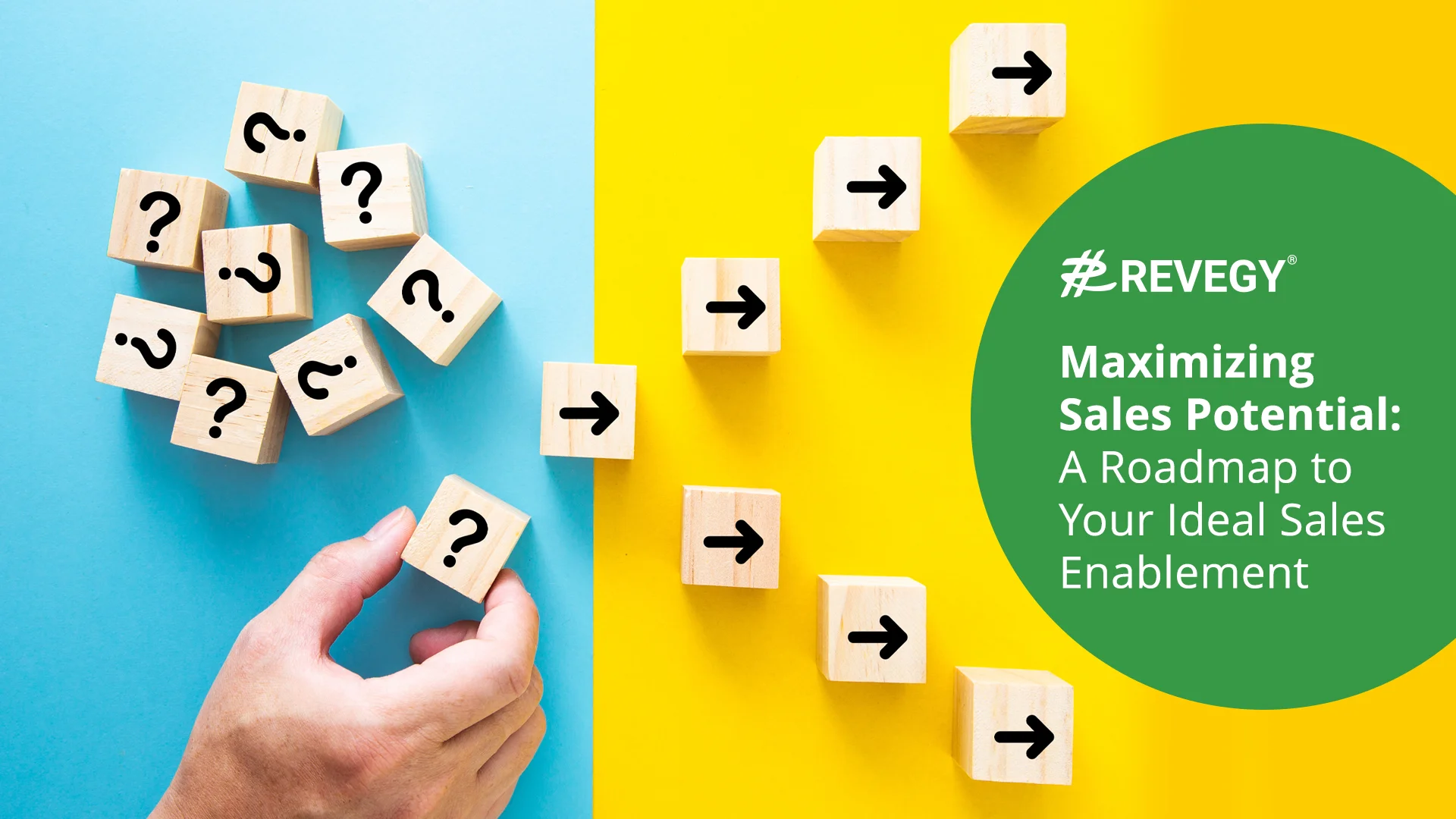In today’s dynamic business landscape, traditional B2B marketing and sales strategies often fall short of harnessing the full potential of lead generation and sales funnel progression. Enter ABX – Account-Based Everything or Account-Based Experience, a revolutionary approach that transcends conventional methods.
Unlike traditional models where marketing, sales, and customer success departments function in silos, ABX fosters a cohesive strategy. It aligns these departments, fine-tunes every account interaction, and crafts strategies that resonate with the unique needs of purchasing stakeholders. Join us as we unravel the nuances of ABX and explore how it’s reshaping the paradigm of B2B sales success.
What Defines ABX?
Account-Based Everything or Account-Based Experience (ABX) has changed how organizations engage with their high-value accounts. It removes organizational silos and brings together marketing, sales operations, and customer success efforts to drive meaningful engagement and conversions within a select group of target accounts. Here are five attributes that characterize ABX:
1. Focused Targeting of High-Value Accounts
Rather than cast a wide marketing net, ABX focuses on target accounts that match your Ideal Customer Profile (ICP). For example, a company providing software to an e-commerce retailer would build an ABX strategy to capture the top 100 e-commerce companies.
Example: Think of a renowned software provider like Adobe. Instead of marketing to every business out there, they might focus their efforts on top design agencies, understanding that these agencies require advanced graphic design tools. This precision targeting ensures higher conversion rates.
2. Data-Driven Intelligence
An ABX strategy gathers data and intelligence on the target accounts and shares this information across the organization so marketing, sales, sales enablement, and customer success teams can customize outreach and close plans.
Example: Salesforce, a leader in CRM solutions, uses ABX to gather detailed data on potential high-revenue clients. This data might include a company’s recent growth, the software they currently use, or upcoming projects. With this intelligence, Salesforce can tailor their pitch to address the specific needs and pain points of each potential client.
3. Smooth Collaboration
A trademark of ABX is collaboration. Marketing, sales account planning, and customer support teams create and execute highly personalized, multi-channel, multi-touch campaigns. This teamwork accelerates customer acquisition and enables upsell and cross-sell efforts.
Example: Consider the collaboration between Apple and IBM. While Apple excels in consumer hardware and software, IBM dominates the enterprise technology space. By aligning their sales and marketing teams, they launched a series of enterprise apps tailored for iPads, showcasing how smooth collaboration can lead to innovative solutions for target accounts.
4. Valuable, Personalized Buyer Experiences
Personalization is often absent in a world dominated by high-volume and high-velocity marketing campaigns. ABX challenges this norm by instead creating personalized campaigns that communicate how a product or service solves the unique needs of individual buyers.
Example: Amazon Business, a B2B marketplace from Amazon, offers personalized purchasing solutions based on the buying habits and needs of businesses. Instead of generic products, and account-based marketing, businesses see products and solutions tailored to their industry and previous purchase history.
5. Coordinated Outreach
ABX breaks conventional marketing and sales approaches, which may include irregular brand-buyer interactions. Instead, it initiates sustained, high-frequency, targeted outreach efforts to elevate the quality of brand-buyer engagement and improve conversion outcomes.
Example: Microsoft, when launching a new enterprise solution, doesn’t just send out generic emails. They coordinate webinars, workshops, and personalized demos for their high-value accounts. This ensures that their outreach is consistent, targeted, and offers genuine value to the potential client.
“In ABX, marketing, sales, and customer success teams will work together, creating a strategy to provide the best end result while keeping a customer-centric view of their work. This ensures each prospective client is presented with the information they need, rather than having to search for it.” – TechTarget
The Elements of Account-Based Experience (ABX)
The Account-Based Experience (ABX) approach can transform marketing and sales outcomes by aligning sales enablement, marketing, and customer success efforts.
Let’s break down each element of ABX:
1. Target Accounts: Navigate with Precision
The first step of ABX is to identify your key accounts. Usually, your key accounts will be those that match your Ideal Customer Profile (ICP) and have a high revenue potential.
According to research by Forrester, companies that align sales and marketing around target accounts saw a 32% growth in revenue. Meanwhile, companies that didn’t align sales and marketing saw a 7% decline.
By narrowing the focus and directing resources toward key accounts, your organization stands a better chance of increasing marketing and sales ROI.
2. Data: Fuel Meaningful Engagement
Data is the lifeblood of ABX. It enables personalization, provides insights, and informs decision-making. ABX data includes firmographic data such as company size, industry, and location. It also includes behavioral data such as brand engagement history and interaction patterns.
This reservoir of data lets the sales team as well as the marketing and customer success departments customize their efforts for each account.
A survey by Salesforce revealed that 84% of customers believe that being treated like a person, not a number, is vital to succeeding in their business, underlining the importance of using data to build a personalized approach.
3. Strategy: The North Star of ABX
Strategy is the guiding light of ABX. A well-outlined strategy includes goals, objectives, and tactics for each engagement with target accounts. It syncs efforts among teams and ensures a combined approach.
Strategic alignment is critical. Research by SiriusDecisions indicates that B2B organizations with closely aligned sales operations and marketing teams saw a 24% faster three-year revenue growth and 27% faster three-year profit growth.
4. Account Planning: Precision at its Best
In ABX, account planning is a combined effort between marketing and sales. All team members understand the key stakeholders in each target account and their respective pain points, goals, and preferred communication channels.
Tools such as Revegy’s Relationship Maps help companies visualize account hierarchies and stakeholder connections and provide the clarity necessary to build customized engagement strategies.
5. Content and Offers: Crafting Personalized Campaigns
In account-based marketing, content and offers include personalized value propositions tailored to each target account’s pain points, challenges, and goals.
For instance, a cybersecurity company targeting healthcare organizations might create content highlighting the role of data protection in the healthcare sector, using real-world case studies that showcase successful implementations at companies similar to that of the target account.
6. Channels and Plays: Orchestrating Engagement
To execute ABX well, selecting communication channels and touchpoints that resonate with the target account is critical. For example, some decision-makers may not respond to an email or use social media, while others could participate actively in webinars and events.
While research by Demand Gen Report found that 51% of B2B buyers depend on content to drive their buying decisions, it’s essential to get the content delivery model right.
7. Metrics: Navigate the Sales Cycle with Insights
Marketing and sales metrics are a compass for ABX. By assessing and documenting the performance of various campaigns and activities, organizations get insights into what’s working and what’s not. Valuable metrics include engagement and conversion rates, pipeline velocity, and customer lifetime value.
According to a survey by Itsma, 87% of ABM practitioners who measure ROI say that ABM outperforms other marketing investments.
8. Technology: Enable Seamless Execution
Sales execution technology enables seamless ABX execution. The right solution will include data management, predictive analytics, relationship maps, and more. It will also easily integrate with your existing CRM, ensuring that sales, marketing, and customer success teams can access the same insights and automation to help close deals.
For instance, predictive analytics can highlight accounts showing buying signals. This, in turn, enables sales and marketing teams to prioritize and align their efforts.
In the grand scheme of ABX, sales execution technology automates critical functions such as account planning, sales training, pipeline forecasting, and more to personalize account engagement, strategically align marketing, sales, and sales enablement departments, and increase wallet share in key accounts.
Revegy’s sales execution technology links sales, marketing, and customer success teams, providing a single source of truth to ease cross-functional collaboration and help teams deliver a consistent and personalized ABX experience.
Take the First Step Towards ABX Excellence
Growing your organization through Account-Based Everything is a transformative journey that begins with the right tools, guidance, and expertise. At Revegy, we are dedicated to supporting your ABX efforts with our cutting-edge sales execution platform.
Unlock the potential of strategic account planning, gain data-based insights, and orchestrate personalized engagement plays. Experience the power of true alignment among sales, marketing, and customer success teams.
Are you ready to redefine your growth strategy? Embrace the Account-Based Everything revolution with Revegy. Let’s navigate the future together, and help your sales, marketing, and customer success teams take center stage. Request a demo now.
Schedule a Demo Below
FAQs: Navigating the Path to ABX Marketing
1. What is ABX in Marketing?
Account-Based Everything (ABX) is an advanced form of Account-Based Marketing (ABM). While ABM focuses on tailored marketing strategy for specific target accounts, ABX marketing integrates all customer-facing departments, including sales and customer service, to provide a unified approach to these accounts. It emphasizes personalization, collaboration, data-driven decisions, and a focus on the entire customer lifecycle. The primary goal is not just engagement but measurable outcomes, especially revenue, from high-value accounts.
2. How does Account-Based Experience (ABX) differ from traditional sales and marketing approaches?
Account-Based Experience (ABX) can be a drastic change from traditional approaches, which prioritize quantity over quality. Unlike mass marketing, ABX uses personalized engagement tactics to nurture a select group of high-value accounts and progress them through the sales funnel.
ABX brings sales, marketing, and customer success teams together to solve target accounts’ specific needs and pain points. This collective effort ensures that every interaction with the prospect is meaningful, builds trust, and drives conversions.
3. How does Account-Based Experience (ABX) address the challenge of information abundance and attention scarcity in B2B marketing?
In the era of information overload, ABX stands out by delivering valuable, hyper-relevant content and personalized experiences to capture the attention of busy B2B buyers.
ABX’s account targeting and customized messaging connect with buyers, increasing engagement rates and creating meaningful interactions. ABX makes the most of the limited attention span of modern B2B buyers.
4. What is the role of Customer Success within the (ABX) Account-Based Experience strategy?
Customer success is a critical element of an ABX strategy. After the initial sale, ABX focuses on nurturing long-term relationships and customer satisfaction.
Using ABX, customer success teams continuously provide customers with valuable insights and educational content and offer ongoing support. ABX ensures that client satisfaction is maintained throughout the customer lifecycle.
Customer success managers also play a vital role in identifying upsell and cross-sell opportunities that can contribute to revenue growth.
Companies have realized the importance of customer success. A survey by Gainsight found that 95% of B2B companies set aside a fixed budget for their customer success efforts. By aligning customer success with sales and marketing, ABX boosts customer loyalty.
5. Is ABX suitable for all types of B2B businesses, regardless of their size or industry?
ABX is a versatile approach that can be tailored to fit the nature of any B2B business, regardless of its size or industry.
Whether you’re a startup, a mid-sized company, or an enterprise-level organization, ABX’s principles of targeted account engagement and strategic brand-buyer alignment remain relevant.
6. Which technologies or tools are essential for implementing an effective ABX strategy?
An effective ABX strategy requires sales execution technology that creates targeted account engagement, provides data-driven account insights, and facilitates cross-departmental collaboration. The right solution will also integrate with your existing sales and marketing tech stack, such as Customer Relationship Management (CRM) systems like Salesforce and marketing automation platforms like HubSpot.
7. What tactics can be used to engage key decision-makers within target accounts who may be difficult to reach?
Engaging elusive decision-makers within target accounts requires a combination of tactics. Personalized and relevant content, delivered through channels preferred by the target audience, is essential.
For example, a study by LinkedIn found that personalized InMail messages had a 15% higher acceptance rate among executives. Utilizing LinkedIn or other social platforms to connect and share valuable insights can open many doors.
Also, pushing multichannel campaigns that include tailored email outreach, targeted ads, and personalized direct mail can help your organization stand out.
Revegy’s platform, for instance, empowers sales and marketing teams to create strategic account plans and deploy coordinated engagement plays, making it easier to connect with key decision-makers.
References:
https://www.demandbase.com/resources/account-based-experience-101/
https://www.gartner.com/en/articles/the-account-based-everything-framework
https://blog.hubspot.com/marketing/account-based-marketing-guide
https://insights.strategicabm.com/account-based-marketing-stats








